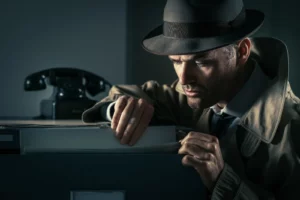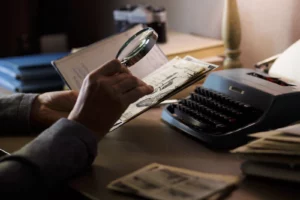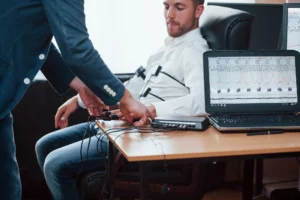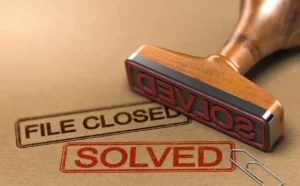Choosing the right fraud investigator for your business is no small task. A decision like this requires careful thought and consideration, as the consequences of your choice could significantly affect your organization’s security and financial health.
The right professional in this role could potentially save your business from devastating losses, while an ill-suited choice could put you at further risk. Therefore, it’s crucial to navigate this process with both urgency and caution.

In this guide, we’ll explore the importance of fraud investigators, provide an in-depth look at key factors to consider when making your choice, and discuss how to assess the effectiveness of one once they’re on the job. We’ll also provide real-life examples where possible to illustrate these points further.
The ultimate goal is to help you feel confident and informed in making this crucial decision by equipping you with all the information you need to select the right fraud investigator for your business.
Let’s dive in, shall we?
Understanding the Importance of Fraud Investigators
Before diving into how to select the right professional, it’s essential to fully grasp why this role is so crucial for your business.
Their Role
Detecting Fraud: Investigators apply their expertise in various industries to uncover fraudulent activities that might be affecting your business. This could include everything from employee theft to insurance fraud, vendor fraud, and more. Their eye for detail and understanding of complex systems help them spot discrepancies that might otherwise go unnoticed.
Gathering Evidence: Once fraudulent activity is suspected, it’s their job to collect evidence. They employ a mix of advanced technologies, investigative techniques, and sometimes even undercover work to gather the necessary information. This evidence is vital for taking further legal action and can be essential in recovering lost assets.
Preventing Future Fraud: Investigators also play a crucial role in mitigating future risks. By identifying the sources and methods of fraud, they can suggest improved procedures, tighter security measures, and more effective monitoring systems.
Impact on businesses
Having someone with these skills on board can have profound impacts on your business:
Financial Savings: By identifying and stopping fraudulent activities early, investigators can save your business significant amounts of money. One report from the Association of Certified Fraud Examiners (ACFE) states that organizations worldwide lose an estimated 5% of their annual revenues to fraud, demonstrating the financial significance of this role.
Enhanced Security: With their insights and recommendations, you can bolster your security systems and procedures, reducing the risk of fraud in the future. This can result in a safer, more secure business environment.
Maintaining Reputation: Fraud, particularly when it becomes public, can severely damage a company’s reputation. By ensuring that your operations are clean and that any fraud is dealt with effectively and discreetly, you can protect your public image.
Case Study
Let’s consider a real-life example to underscore their importance. A company in the manufacturing industry was noticing consistent financial discrepancies. They hired a fraud investigator who, after a detailed examination, uncovered a long-running scheme where an employee was siphoning funds into a personal account. The investigator not only collected enough evidence for legal proceedings but also helped the company strengthen its financial protocols to prevent such incidents in the future.
Key Factors to Consider

Having a seasoned investigator can make a world of difference for your organization. So, what should you keep in mind while looking for one?
Experience and expertise
First and foremost, you’ll want to ensure that your prospective investigator has a strong background in fraud detection and prevention:
Industry-Specific Experience: Make sure they have experience in your particular industry. Fraud in the healthcare sector, for example, can look very different from fraud in the finance industry. Investigators with relevant experience will be more likely to spot industry-specific fraud trends and methods.
Investigative Experience: Ask about the types of fraud they have investigated in the past. This will give you an idea of their range of expertise and their ability to handle complex cases.
Technical Skills: In today’s digital age, fraud often involves complex technological aspects. Ensure that they are well-versed in digital forensics, data analysis, and other relevant tech skills.
Licensing and Certifications
Second, you’ll want to check their qualifications. Here are some important credentials:
Licensing: Many jurisdictions require private investigators, including fraud investigators, to be licensed. Confirm that they hold a valid license in your area.
Certifications: Certifications demonstrate an investigator’s commitment to their profession and their expertise. Look for certifications such as Certified Fraud Examiner (CFE), Certified in Financial Forensics (CFF), or Certified Forensic Interviewer (CFI).
Reputation and references
Finally, you’ll want to assess their reputation:
Client Testimonials and Reviews: Look at reviews or ask for testimonials from past clients. You’re looking for consistent positive feedback and successful case outcomes.
Professional References: Ask them to provide professional references. It could be former clients or colleagues who can vouch for their integrity, skill, and professionalism.
This is not an exhaustive list, but it provides a solid starting point to gauge the suitability of a potential investigator. As you consider these aspects, you’re sure to gain a clearer picture of the kind of professional you want on your side. In the next section, we’ll delve into the specific questions you should ask.
Essential Questions to Ask

After you’ve evaluated the credentials and experience of potential candidates, it’s time to initiate direct conversations. Engaging in a detailed discussion will provide you with insights into how they operate and whether they will be a good fit for your organization:
Proposed Approach to Your Specific Case
Understanding how they plan to approach your specific situation can offer a glimpse into their problem-solving capabilities and expertise.
Methodology: Ask about the methodologies and strategies they typically employ in their investigations. Their answers should reflect a clear understanding of investigative processes and modern techniques.
Use of Technology: Inquire about their familiarity with and usage of modern technologies and software for investigations. A competent investigator should be well-versed in using technology to their advantage.
Handling of Evidence: Discuss how they handle the collection and preservation of evidence. The process should adhere to legal standards to ensure its validity in any future proceedings.
Fee Structure
Transparency about fees and charges is crucial to avoiding misunderstandings later. Here are a few points to clarify:
Pricing Model: Do they charge by the hour, or do they work on a flat-fee basis? Is there a retainer fee?
Expense Coverage: What expenses will you be expected to cover? This could include anything from travel expenses to charges for specific services like background checks or technical tools.
Billing Practices: How often will they bill you, and what payment methods do they accept?
Making the Final Decision

Here are a few final steps to guide you in making your decision:
Review and compare
Compile Information: Gather all the information you have obtained from each candidate. This includes their experience, qualifications, references, proposed strategies, and fee structure.
Compare: Compare the candidates against each other. Use the criteria we discussed earlier, including experience, reputation, and transparency, to evaluate who stands out. Remember, the cheapest or the most expensive investigator is not necessarily the best.
Reflect: Reflect on the interviews and your interactions with the candidates. Consider their professionalism, communication skills, and the overall feeling you got during your conversations. Trust your instincts; they often play an important role.
Seek Legal Advice
If you’re unsure about the legal aspects of hiring a fraud investigator, it might be a good idea to consult with a legal expert. They can guide you on:
Contractual Agreements: An attorney can help review any contractual agreements with the investigator to ensure you’re adequately protected.
Legal Compliance: They can advise you on the legalities involved in the investigation to ensure you and the investigator are compliant with all relevant laws and regulations.
Make your decision
Once you’ve completed all these steps, it’s time to make your decision. Remember that no one investigator will tick all the boxes perfectly. The aim is to find the one that best matches your needs and who you feel you can trust with the integrity of your business.
Assessing Effectiveness

After you’ve made your decision and the investigator is on board, it’s vital to keep track of their performance. This will help you determine whether you’ve made the right choice and if your investment in their services is paying off.
Regular updates and communication
A proficient investigator should maintain regular communication, providing you with updates about the case’s progress:
Frequency: Are you receiving updates regularly and promptly? Regular communication is key to keeping you informed and involved.
Clarity: Are the updates clear and understandable? They should be able to explain complex investigative aspects in simple terms.
Responsiveness: How promptly do they respond to your queries? Timely responses reflect their commitment to your case.
Evidence Collection and Reporting
How they handle evidence and report their findings is a significant factor:
Thoroughness: Are they thorough in their evidence collection, leaving no stone unturned?
Preservation of Evidence: Are they properly preserving and documenting the evidence so that it’s legally admissible if needed?
Reporting: Are their reports detailed, clear, and well-organized? The report should summarize their findings and provide actionable insights.
Confidentiality and ethical standards
Maintaining confidentiality and adhering to the highest ethical standards is non-negotiable. Keep an eye out for the following:
Confidentiality: Are they treating all information related to the case with utmost confidentiality?
Ethical Practices: Are they operating within legal and ethical boundaries at all times?
Transparency: Are they transparent about their processes and actions? They should be open to scrutiny and willing to explain their methods.
By keeping track of these aspects, you can evaluate whether the investigator is providing value and effectively handling your case. In our final section, we’ll talk about making that final decision and what steps to follow once you’ve found the right investigator for your business.
Final Thoughts
The process of choosing the right fraud investigator for your business is a significant undertaking, and rightly so. The integrity and security of your organization are at stake. But by following the steps outlined in this guide, you can approach this task with confidence and clarity.
The goal is not to find the perfect investigator, but the right one for your specific needs. This involves considering key factors like experience, qualifications, and reputation, asking essential questions, and assessing their effectiveness over time.
While the journey may seem overwhelming at first, remember that every step you take is a stride towards securing your business against fraudulent activity. By making a thorough and informed choice, you’re not just hiring a service; you’re investing in peace of mind.
So take your time, do your research, trust your instincts, and make a decision that propels your business towards growth and success.













